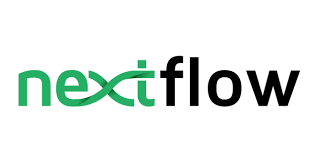Intended audience:
Beginner - intermediate level bioinformaticians working with next-generation sequencing data for disease surveillance on the African continent
Purpose:
High-throughput laboratory machines generate large quantities of primary biological data. Processing these data to generate useful information involves several tools and setting up of complex bioinformatics environments across heterogeneous computing infrastructure. Bioinformatics workflow managers provide portability and reproducibility of analysis and optimization of available computing resources.
The Advanced Bioinformatics workflow workshop is aimed at introducing and deploying Nextflow, a tool that enables scalable and reproducible scientific workflows.
Pre-requisite:
- For the course, access to a high-performance computer will be organised by trainers Learning objective:
- To be able to implement a bioinformatics workflow using the best practices taught in previous iterations of the course
- Venue of course: KEMRI / WELLCOME TRUST Kilifi, Kenya
- Start date: 2024-05-20
- End date: 2024-05-24
- 1. Bacterial AMR
- 2. Metagenomics for diagnostics
- 3. Variant calling and phylogenetics
- 1.1 ChatGPT
- 1.2 Julia
- KEMRI-Wellcome Trust Research Programme,International Livestock Research Institute (ILRI),Malawi-Liverpool-Wellcome Trust
- Dr George Githinji,John Juma, Phil Ashton
- 1. Bacterial AMR
- 2. Metagenomics for diagnostics
- 3. Variant calling and phylogenetics
- 2.1 Project work
- - get main tools working in isolation (not in workflow)
- - to join the tools together into workflow
- KEMRI-Wellcome Trust Research Programme, International Livestock Research Institute (ILRI),Malawi-Liverpool-Wellcome Trust
- Dr George Githinji,John Juma, Phil Ashton
- 1. Bacterial AMR
- 2. Metagenomics for diagnostics
- 3. Variant calling and phylogenetics
- 3.1 Project work
- -key tasks implemented in workflow
- KEMRI-Wellcome Trust Research Programme, International Livestock Research Institute (ILRI),Malawi-Liverpool-Wellcome Trust
- Dr George Githinji,John Juma, Phil Ashton
- 1. Bacterial AMR
- 2. Metagenomics for diagnostics
- 3. Variant calling and phylogenetics
- 4.1 Project Work
- - workflow completed
- - write presentation
- KEMRI-Wellcome Trust Research Programme, International Livestock Research Institute (ILRI),Malawi-Liverpool-Wellcome Trust
- Dr George Githinji,John Juma, Phil Ashton
- 1. Bacterial AMR
- 2. Metagenomics for diagnostics
- 3. Variant calling and phylogenetics
- 5.1 Project work
- - Presentations
- KEMRI-Wellcome Trust Research Programme, International Livestock Research Institute (ILRI),Malawi-Liverpool-Wellcome Trust
- Dr George Githinji,John Juma, Phil Ashton
The course will cover:





Logistics:
| Themes | Course materials | Training partner | Interactive Sessions with Instructor/s |
|---|---|---|---|
|
|
|
| Themes | Course materials | Training partner | Interactive Sessions with Instructor/s |
|---|---|---|---|
|
|
|
| Themes | Course materials | Training partner | Interactive Sessions with Instructor/s |
|---|---|---|---|
|
|
|
| Themes | Course materials | Training partner | Interactive Sessions with Instructor/s |
|---|---|---|---|
|
|
|
| Themes | Course materials | Training partner | Interactive Sessions with Instructor/s |
|---|---|---|---|
|
|
|